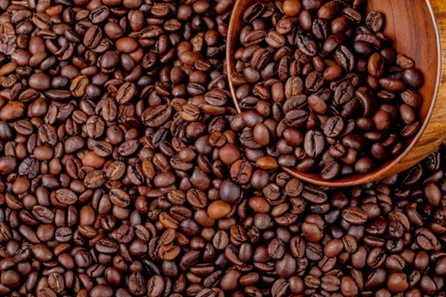
Introduction:
Is your morning coffee ritual more important to you than just that caffeine kick-start? Have you ever wondered where your coffee comes from, how it’s grown, and whether it’s sustainable? Do you want to ensure your beans don’t just taste good, but do good for the planet, too? If so, this Insider’s Guide to Choosing the Best Organic Coffee Beans is for you.
With a plethora of options saturating the coffee market, making the best choice can quickly become overwhelming, especially when you’re trying to prioritize both flavour and sustainability. But fear not! We’re here to guide you through the world of organic coffee, unravel its intricacies, and help you to make an informed decision every time you replenish your pantry.
We’ll be diving into the why, what, when, and who of organic coffee beans. Tackling tricky topics such as the pros and cons of different varieties, evaluation methods, and most importantly, where to find the cream of the crop (pun intended).
Why Choose Organic?
The decision to opt for organic stems from a larger urge to make sustainable choices in every facet of life. Organic farming practices not only ensure that your coffee is devoid of chemical residues, but also contribute to overall environmental health. It nurtures the biodiversity of the region and is safer for the farmers.
What differentiates organic coffee from its standard counterparts is the farming practices. Organic coffee is grown without the use of synthetic pesticides or fertilizers, ensuring a cleaner, healthier bean. It’s not just about your health, either. These sustainable practices protect the ecosystem in which the coffee is grown.

On the flip side, organic coffee is often slightly more expensive – a small price to pay for a healthier environment and better working conditions for farmers. Taste-wise, some might argue that there is no noticeable difference, but we believe that the peace of mind, knowing you’re making an ethical choice, sweetens the taste.
What to Look for?
Navigating the world of organic coffee can feel like trekking through thick vegetation without a compass, but there are a few key indicators you can look for. One is reliable organic certification. This assures you that the coffee has met stringent organic farming standards.
Beyond that, coffee’s flavour is influenced by factors like its origin, elevation, and processing method. Researching these factors can narrow your choices and lead you to the coffee that’s just right for your palate.
Do an honest assessment of your taste preference. Do you prefer a bold, strong flavour or something more mild and subtle? Knowing your preference is the first step in finding your perfect organic coffee.
When to Buy?
The timing of your coffee purchase can impact its freshness and flavour. Coffee has ‘crop years’, just like wine has vintages. To ensure the freshest beans, look for those harvested in the current crop year.
Additionally, coffee is best used within weeks of roasting. If possible, buy from a roaster that shares the roast date. Remember, freshness impacts flavour, so time your purchases and consume while it’s at its peak.
Identifying Pros and Cons:
Every product has its strengths and weaknesses and organic coffee beans are no different. The most significant pro is certainly the environmental and health benefits. Organic coffee promotes biodiversity, reduces exposure to chemical residues and supports fair trade.
On the downside, finding the right organic coffee and ensuring its authenticity can be a tricky endeavor. Besides, the cost of organic coffee is slightly higher than regular coffee, a result of the more labor-intensive farming and certification processes.
Choosing Your Supplier:
To get the most out of your organic coffee experience, it’s important to choose your supplier carefully. Look for those who practice direct trade, prioritize sustainable farming practices, and pay fair wages to farmers.
Reputable suppliers should be transparent about their sourcing methods and be more than willing to share this information. By choosing one of these vendors, you’ll not only get a great cup of coffee, but also support ethical and sustainable practices.
Conclusion:
Choosing the best organic coffee beans doesn’t have to be a complex chore. It’s about seeking out those great, ethically grown beans, appreciating the hard work and dedication that goes into every cup, and finding the flavours that appeal to your own personal taste preferences.
Despite the minor hurdles like the slightly higher cost and the research involved, the resultant rich flavours and the knowledge that your choice is making a positive impact on the environment, certainly makes it worth the effort. So drink up, knowing that with every sip, you’re casting a vote for delicious, ethical coffee. Happy brewing!





